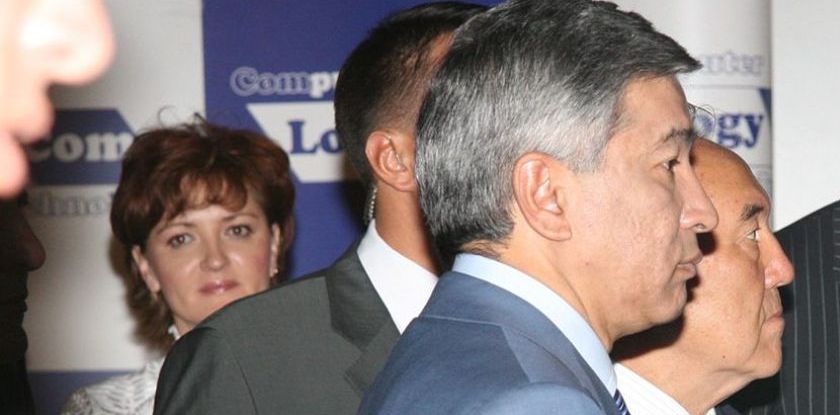The press and social media are now extensively discussing Imangali Tasmagambetov’s appointment as Kazakhstan’s Ambassador to Russia. His predecessor Marat Tazhin has returned to Astana as the First Deputy Head of Nazarbayev Administration. The opinions offered by the disputants are widely dispersed (even among the political scientists). Some believe this appointment is nothing but a political disgrace while others think it may be Tasmagambetov’s own maneuver, non-transparent to the casual observer.
In Kazakhstan, all the personnel decisions of this level are made behind-the-scenes, without a public discussion. Hence the offered explanations of Nazarbayev’s move are nothing but hypotheses and we do not see a point to develop yet another one here. However, we can still discuss it from the standpoint of how advantageous (or disadvantageous) this event is for those involved.
What are the benefits for Imangali Tasmagambetov? How does the appointment as Kazakhstan’s Ambassador to Russia work to his advantage?
- First, Tasmagambetov left the practically “punishable by death” position in the government. The social affairs block he supervised was the most difficult and problematic one to manage especially considering the current issues with the state budget revenue.
- Second, the position of Kazakhstan’s Ambassador in Moscow, however challenging, is still not as tough. For Tasmagambetov, this may be crucial from the standpoint of his physical and psychological health.
- Third, the new appointment will enable Tzamagambetov to establish personal liaisons with a wide circle of counterparts in Russia including Vladimir Putin and Dmitry Medvedev. This is particularly important in the light of the fact that Kazakhstan is part of Russia’s geopolitical sphere of interest and, from the look of it, is bound to remain in this sphere for decades to come.
- Fourth, moving to Moscow removes Tasmagambetov from the Kazakh media visibility zone and dramatically decreases his personal vulnerability to his political opponents. It is much more difficult to criticize an ambassador than to bash a deputy prime minister for social affairs.
There could be other benefits including the ones of a personal nature. However, we believe we have given enough arguments to support Nazarbayev’s words that Tasmagambetov had asked him for a diplomatic post himself.
This, however, begs a question why the president had consented to this request. As the Deputy Prime Minister, Tasmagambetov was clearly up to the job and performed his task much better than his predecessor Dariga Nazarbayeva.
Here is an answer. We believe the relations with Russia are Nazarbayev’s priority. Therefore, he must appoint a strong political figure as Kazakhstan’s Ambassador to Russia, someone who can proceed not only by the rules of diplomacy but by some other means, who can act independently, fiercely, and sensibly. So, the question is who, besides Tasmagambetov, could replace Marat Tazhin? The answer is obvious. The number of such persons is drastically limited and all of them hold one or another key position in the government.
Besides, Tasmagambetov’s diplomatic transfer enables Nazarbayev to ease the tension in his immediate circle. It was precisely the adversarial relationship between Imangali Nurgaliyevich and Dariga Nazarbayeva that had been seriously upsetting the stability in the highest level of power. Now this conflict is no longer relevant although the tension in the relationship will remain.
Of course, Nazarbayev’s decision has its downsides for both Tasmagambetov and the president. Specifically, for Nazarbayev, there is a risk of losing the principal voice in the matter of power shift in the country. This may happen if Tasmagambetov establishes particularly tight connections with the Russian authorities.
There are disadvantages for Tasmagambetov, too. For instance, he will partially lose his influence in the government. Needless to say, the decision-making status has always been valued highly by state officials when determining which influence group to join. However, Tasmagambetov, unlike some of his colleagues, does not have his own business interests and, thus, is less vulnerable in that regard.
As for Kazkommertsbank whose major shareholder is Kenes Rakishev, Tasmagambetov’s son-in-law, this financial institution is as they say “too big to fail”. Thus, any decisions regarding its fate will be made at the highest political level. And it is at this level that Tasmagambetov will retain his influence.
In conclusion, although one cannot state with certainty what the president’s motivations are, Nazarbayev’s resonant decision seems like a reasonable compromise for everyone now. Who will be its main beneficiary is another matter.




